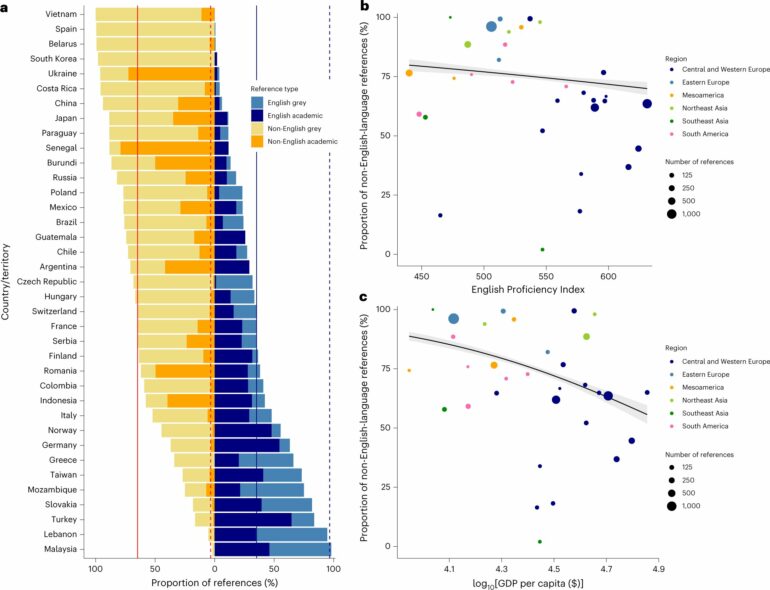Research in languages other than English is critically important for biodiversity conservation and is shockingly under-utilized globally, according to an international research team.
The University of Queensland (UQ) led a worldwide study that investigated national reports on biodiversity conservation in 37 countries and territories where English is not an official language.
The research team, which included Dr. Jessica Walsh from Monash University’s School of Biological Sciences, found that non-English-language literature was extensively used in the national reports of most individual countries but had failed to be reflected in global reports.
Dr. Walsh, a co-author of the study published in Nature Sustainability helped design the survey, which captured data from all continents.
“Using the best scientific evidence available to inform conservation decisions is essential,” Dr. Walsh said.
“But much of this is written in non-English sources and is often ignored in international reports.”
“It is important that the relevant evidence, regardless of the language it is published in, is considered in national and international biodiversity policy and practice.”
Lead study author Dr. Tatsuya Amano from UQ said in the Intergovernmental Science-Policy Platform on Biodiversity and Ecosystem Services (IPBES) reports, only 3.4% of references were published in non-English languages.
The researchers say that further international collaboration is essential to developing more effective conservation science, and therefore more effective policy interventions.
“The Translate research project is a great example of how cross-language, international collaborations can lead to better scientific outcomes,” Dr. Amano said.
“We’ve collaborated with over 100 people, who are collectively native speakers of about 20 languages, to identify important science available only in non-English languages.”
More information:
Tatsuya Amano et al, The role of non-English-language science in informing national biodiversity assessments, Nature Sustainability (2023). DOI: 10.1038/s41893-023-01087-8
Citation:
Scientists call for a multilingual approach to conservation (2023, March 17)
